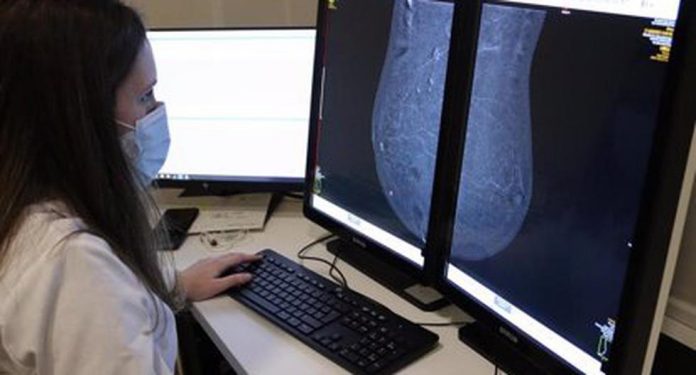It is estimated that 232,000 American women will be diagnosed with breast cancer this year, and that 40,000 will die. Breast cancer is the second most common cancer after prostate cancer in terms of number of cases, ahead of lung and colon cancers. A mammogram is an excellent screening tool for the detection of breast cancer; however, it does not 100% effective in cancer diagnosis, and false positives can occur, which can lead to procedures including biopsy and surgery, which, in the final analysis, were found to be unnecessary. A new study released by the US Preventive Services Task Force pinpointed which women would benefit most from the procedure.
The investigators reviewed clinical studies on breast-cancer screening and concluded that “some women in their 40s will benefit from mammography” but that “most will not, while others will be harmed.” They noted that those harmed include women who undergo surgery, radiation or chemotherapy for cancers that never would have threatened their health. They concluded that mammograms are more beneficial for women 50 to 74 years old than for younger women, while the benefits for women 75 and older are unclear
The task force first examined the mammography issue in November 2009 when it issued a decision that women in their 40s need not undergo a mammogram; this sparked considerable debate among the medical community. The new guidelines have been modified; the panel noted that in this age group. The decision “should be an individual one, recognizing the potential benefits as well as the potential harms.”
“There is value to mammography screening in the 40s,” noted task force vice chairman Dr. Kirsten Bibbins-Domingo, a professor of medicine at the University of California, San Francisco. She added, “There are benefits, and they exceed the harms, but only by a small amount.” For the analysis, the panel members reviewed eight major studies of mammography screening in the US, Canada, the UK, and Sweden. They concluded that women in their 40s could benefit more from screening if they have a mother, sister, or daughter with breast cancer.
Currently, many doctors recommend a screening mammogram for women in their 40s, and women 75 and older, if they are otherwise healthy. A significant factor prompting physicians and patients to be skeptical of the task force recommendations is that the harms, including “overdiagnosis,” are rather difficult to understand. The American Cancer Society advises yearly mammograms starting at 40 and continuing for as long as a woman is in good health. The American College of Radiology also recommends annual mammograms beginning at 40. Dr. Richard Wender, chief cancer control officer of the American Cancer Society, noted, “Seventeen percent of women who go on to die of breast cancer were diagnosed in their 40s. Nobody knows what the real overdiagnosis rate is.”
Dr. Otis Brawley, chief medical officer for the American Cancer Society, noted, “Screening women every two years is almost as effective as screening every year, especially when you get postmenopausal women” added to the mix. However, he added that some healthcare professionals argue that it may make sense for younger women to get more frequent screenings because tumors can grow faster in them.








